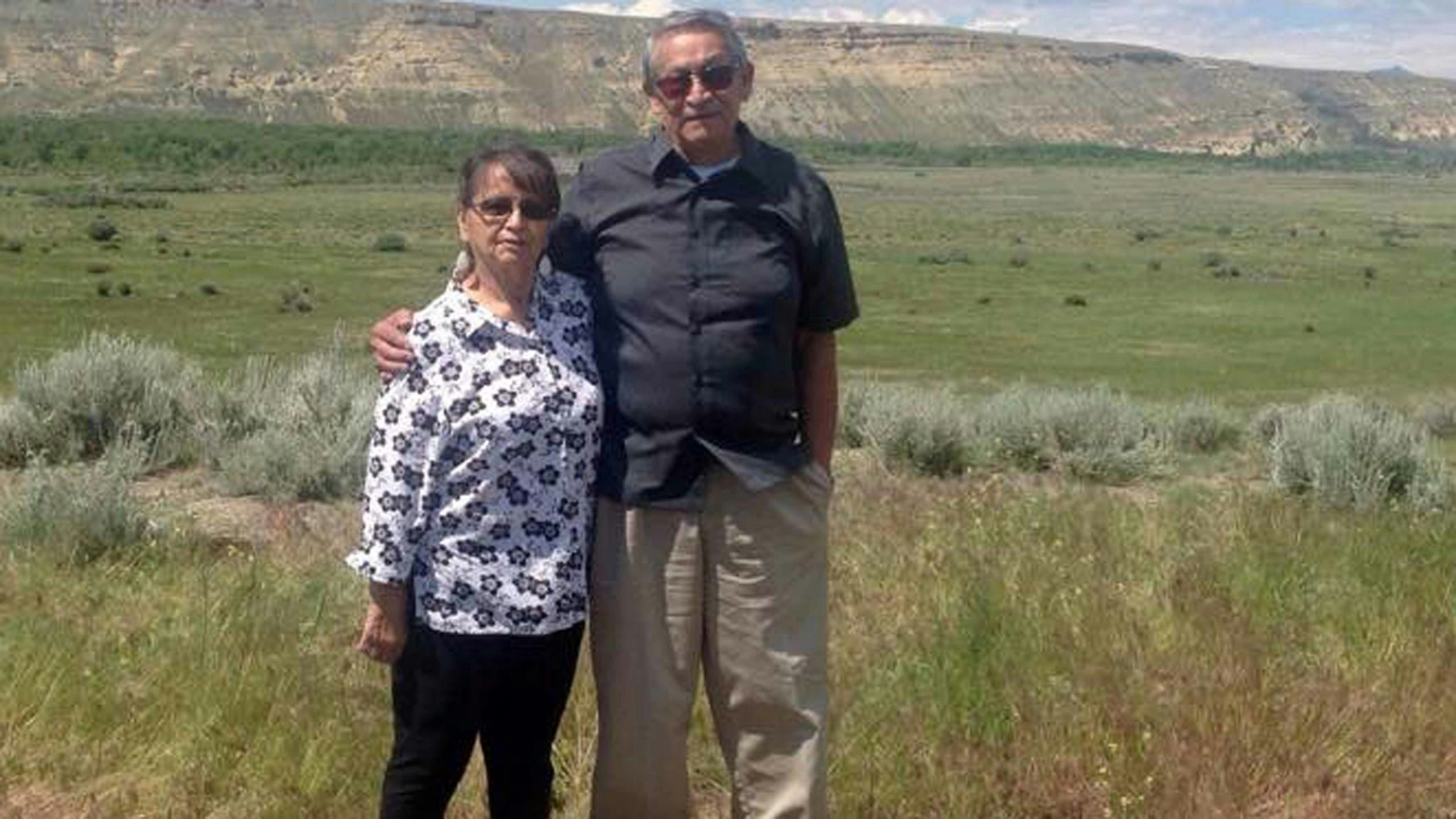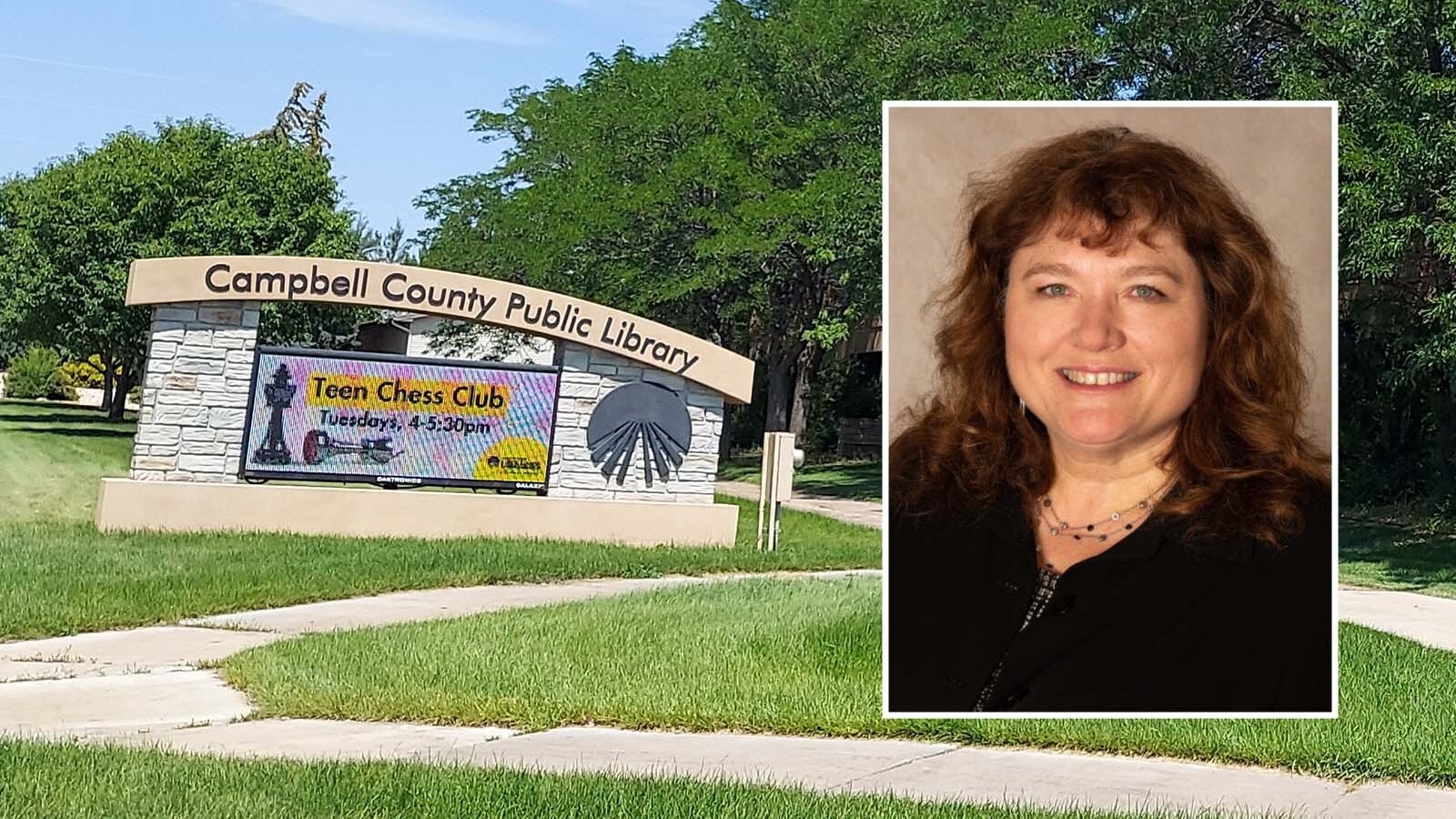The family members of a Fort Washakie man who disappeared north of Crow Heart a little less than three years ago are continuing their search for the man in the mountains north of Dubois.
Rodolfo “Rudy” Ramirez, 74, and his wife Georgina, who is originally from the Wind River Reservation, had been camping on July 5, 2019, with her son and daughter and their families. The group had set up camp in a remote, rugged terrain near the Crow Creek area on the edge of the Wind River Reservation.
The area is remote, with an elevation of 8,000 to 10,000 feet and steep cliffs and densely forested land. A stream ran along the family’s campsite. Outside of a few campers and some loggers, it’s a desolate spot inhabited by wildlife and a protected area for grizzly and black bears.
Georgina and Rudy spent the first night in their camper, freezing despite the multiple blankets. Rudy had a hard time falling asleep, Georgina said, because it was so cold.
The next morning, Rudy complained of a headache and stomach-ache. The group had breakfast and planned to drive to the top of Black Mountain, which was a ritual for the family. When it came time to leave, Rudy, who suffered from Alzheimer’s, opted out and said he’d wait at the campsite for them to get back.
The group was gone for most of the day and returned in the early evening, but Rudy wasn’t there. Georgina thought she’d walk up to see him sitting in front of the fire or resting in the camper. A quick search led to a panic; Rudy was nowhere to be found.
His grandchildren ran along the creek and woods hollering for him while Georgina drove down the road several miles to get a cell signal to call a search and rescue team and Rudy’s youngest daughter from his first marriage, Patricia Ramirez.
By the time the search and rescue team got to the campsite, it was dark. The team’s leader told Georgina there was nothing that could be done until morning, when he would be able to formulate a search plan and round up volunteers.
Though Georgina understood the practicality of this plan, she was devastated. There was no way that Rudy would weather the frigid temperatures overnight. His Alzheimer’s might also have led him to become easily confused and disoriented.
“That was the hardest part,” she said. “Knowing he was out there in the freezing cold without a blanket or anything.”
Five-Day Search

Multiple agencies, including the Shoshone and Arapaho Fish and Game, Fremont County Search and Rescue and Sheriff’s Office, and family members combed the area for the next five days.
Patricia drove up from Albuquerque, New Mexico, with Rudy’s grandson to help.
The search involved dozens of people on foot, in vehicles, flying drones and helicopters with thermal heat detection capabilities searching through miles of trees, river bottoms and the area around Black Mountain and the Absaroka Range.
By the time help got there, however, two days had already passed. Not only was it doubtful that Rudy survived that first night in the cold, but it poured rain the second night, further complicating the rescue operation.
Assistance also came from the Wyoming State Trackers, a nonprofit group of trained trackers who do visual tracking searches, but its members also turned up nothing.
Meanwhile, the Jon Francis Foundation (JFF), a nonprofit organization from Minnesota that helps look for adults lost in the wilderness, drove out to Wyoming and worked with local organizations and volunteers to deploy six canine teams for three days.
Cadaver and scent dogs picked up Rudy’s smell about 1.25 miles from the campsite in the willows near the canyon, according to an incident action plan by JFF and Patricia, but no definitive traces were found.
The family members also raised money to do their own air searches by helicopter after the search parties left.
Searches continued throughout the rest of the summer up until hunting season in early fall and again the next summer. As Patricia noted, the terrain is steep and dangerous with lots of wildlife. The second-to-last search in 2019 was halted due to bear sightings and other potential dangers for searchers.
Three years later, despite exhaustive searches, no trace of Rudy has ever been found.
Patricia said that their family was overwhelmed by all the support from volunteers and different groups, including law enforcement, who helped with the search.
“People came out on their own time just to help,” Patricia said. “They weren’t getting paid for it. They just wanted to help. They were so brave, and I know that my dad would be really impressed with their skills and courage to go out there like that.”
Keeping His Memory Alive
Instead of focusing on their heartbreak, Patricia and Georgina choose to focus on the memories of the cherished husband and father who was beloved by everyone he knew or met.
Patricia said that even strangers were affected by her dad’s kindness. Once, while Patricia was hanging up a missing person poster for Rudy, a clerk at the gas station commented on remembering Rudy from the few occasions he had stopped by.
“He made an impact on people with his kindness,” Patricia said.
One of those people was Georgina, who met Rudy when he moved to Wyoming in the early 2000s.
Rudy was a trained civil engineer and U.S. Army veteran who also served in the National Guard. He spent his life working for the U.S. Department of Transportation in various cities throughout the U.S. and had just transferred to the Riverton area to work with the local transportation department.
One of Georgina’s friends who worked in Rudy’s building invited Georgina to dinner one night. Rudy and his friend John also happened to be there, convincing Georgina that their friends had set the two up.
Rudy and Georgina immediately connected and later got married, moving in together in Fort Washakie.
Rudy was already retired by the time they met, Georgina said, though he later worked at the elementary school as a teacher’s assistant where the children loved him, even though he wasn’t there for very long.
“Everyone seems to remember what a gentleman he was,” Georgina said. “He was one of the nicest people I’ve ever met.”
The two enjoyed visiting friends and family in Colorado and New Mexico and took many trips together.
His love of road trips is one thing his daughter also remembers about him. That and his love of music and joking around.
Patricia is the youngest of five children. She was born in New Mexico, but Rudy’s aspirations took the family all over the country, including to the East Coast where they lived in Virginia for a few years while Rudy worked in Washington, D.C.
“He took the train in to work every day,” Patricia said. “I think he really liked that and was proud of how far he’d come in his career.”
He was a good dad, Patricia added.
“He was so loving and would do anything for family,” she said.
It’s important to remember the good times, Patricia noted. For now, that’s all they have left.
Theories

In the absence of definitive answers, theories and suppositions are the closest the family can get to knowing what might have happened to Rudy.
David Francis of JFF said that in his 14 years of searching he’s learned that the simplest explanation typically proves to be the most reliable.
To this point, he believes that Rudy likely walked along the road by the campsite in either direction for about two miles, at which point he had some kind of mishap. Francis theorized that Rudy likely suffered from hypothermia or perhaps was taken by a predator.
Based on the observations of author Robert Koester in his book, “Lost Person Behavior: A Search and Rescue Guide on Where to Look for Land, Air and Water,” most people who are lost walk until they get stuck, at which point they might cross or leave roads and ping-pong off barriers attempting to find their way back.
People with Alzheimer’s also tend to travel on corridors and roadways, research has shown, and though they might veer off of the corridors, 75% of those people are typically found within 75 feet of the road.
The Peace River K9 Search and Rescue group from Englewood, Florida, which searched the area in July 2020 also came away without definitive answers.
The group searched with cadaver dogs and tested soil samples to detect biological fluids, human remains, teeth, bone and other types of evidence. They determined, according to their final report, that there was a high possibility that some kind of event occurred close to the waterway on the northwest slope of the mountain where their K9 had alerted.
Another theory came from a vision from a Navajo medicine man who met with Georgina at the campsite. He built a fire and prayed, following the direction of the smoke and looking to the spirits for wisdom. The medicine man told her the spirits said that Rudy had walked up to the top of the mountain, stumbled and fell off a cliff. He pointed to the southwest side of the road, which was the only description he could give her.
Georgina can’t stop thinking about how confused and lost Rudy must have felt, but regardless of what might have happened, both she and Patricia believe that Rudy is at peace.
Other family members believe that Rudy might still be alive. They speculate that Rudy might have run into someone who stopped at the campsite or while he was walking down the road who gave him a ride somewhere.
Patricia and Georgina want everyone to have closure and they have hope they will find him one day.
The family is offering a $7,500 reward for any information leading to Rudy’s recovery.
Anyone with information is asked to contact the Shoshone and Arapaho Fish and Game Office (307) 330-3208, Fremont County Sheriff’s Office (307) 332-5611 or the Wind River Police Department (307) 332-3112.





